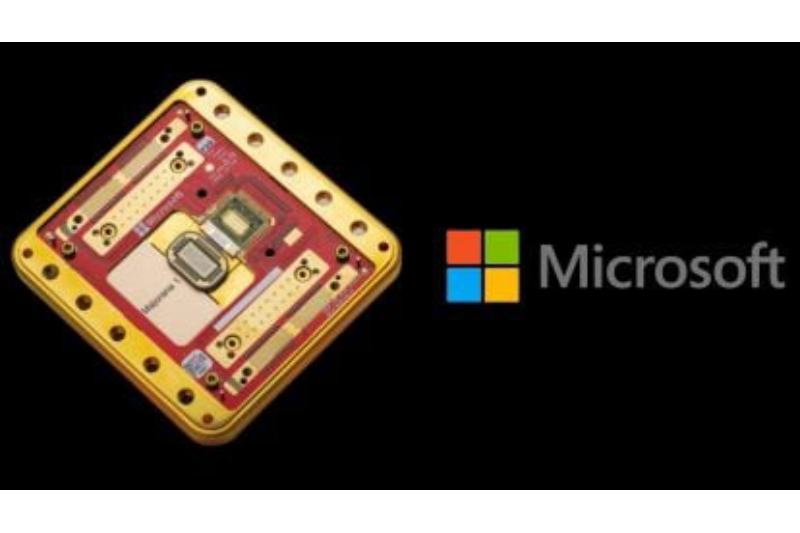
Quantum computing is advancing fast. Microsoft has just introduced its latest innovation, the Majorana 1 Quantum Chip. This could be a game-changer, making quantum computers more stable, scalable, and practical for real-world use.
The Majorana 1 Quantum Chip is Microsoft’s first quantum processor built on topological qubits. These qubits are more stable than traditional ones, reducing errors and making large-scale quantum computing possible.
Microsoft has spent nearly 20 years developing this technology. Now, it has unveiled a chip that could transform the quantum computing landscape.
Quantum computers promise to solve problems that classical computers can’t. However, their biggest challenge has been qubit instability. Traditional qubits are highly sensitive, making them hard to scale.
Microsoft’s topological qubits offer a solution. They protect quantum information in a way that makes the system more reliable. The goal? A quantum computer with one million qubits on a single chip. If achieved, this could revolutionize industries like healthcare, AI, and materials science.
The chip is made using specialized materials like indium arsenide and aluminum. When cooled to near absolute zero, these materials form Majorana zero modes. These unique quantum states help store information with fewer errors.
This approach makes the Majorana 1 Quantum Chip more fault-tolerant. Unlike other quantum systems, it doesn’t need extensive error correction, which makes it more efficient.
With the Majorana 1 Quantum Chip, Microsoft is one step closer to building a true quantum supercomputer. This could lead to breakthroughs in:
Drug discovery – Simulating molecules at the atomic level to create better medicines.
New materials – Designing next-generation materials for cleaner energy and technology.
Logistics & AI – Optimizing supply chains and solving complex problems faster than ever.
Cybersecurity – Changing encryption and security as we know it.
Companies like Google and IBM are also competing in the quantum race. But Microsoft’s topological qubit approach gives it an edge.
IBM and Google use superconducting qubits that need heavy error correction.
Microsoft’s qubits are naturally resistant to errors, making them more scalable and efficient.
If this technology works at scale, it could be the fastest route to practical quantum computing.
Microsoft’s progress has earned attention from the Defense Advanced Research Projects Agency (DARPA). The company is now in the final phase of DARPA’s US2QC program, which aims to build a utility-scale quantum computer.
This collaboration could speed up development and bring quantum computing closer to reality.
Microsoft is now focused on scaling up the Majorana 1 Quantum Chip. The company aims to increase qubit count while maintaining stability. This process will take time, but each breakthrough brings us closer to real-world quantum computing.
The Majorana 1 Quantum Chip marks a major step in quantum computing. Microsoft’s use of topological qubits is solving one of the biggest challenges in the field: stability. If successful, this technology could unlock solutions to some of the world’s most complex problems.
Quantum computing is evolving rapidly, and Microsoft is at the forefront. The next few years will determine if the Majorana 1 Quantum Chip is the breakthrough the industry has been waiting for.